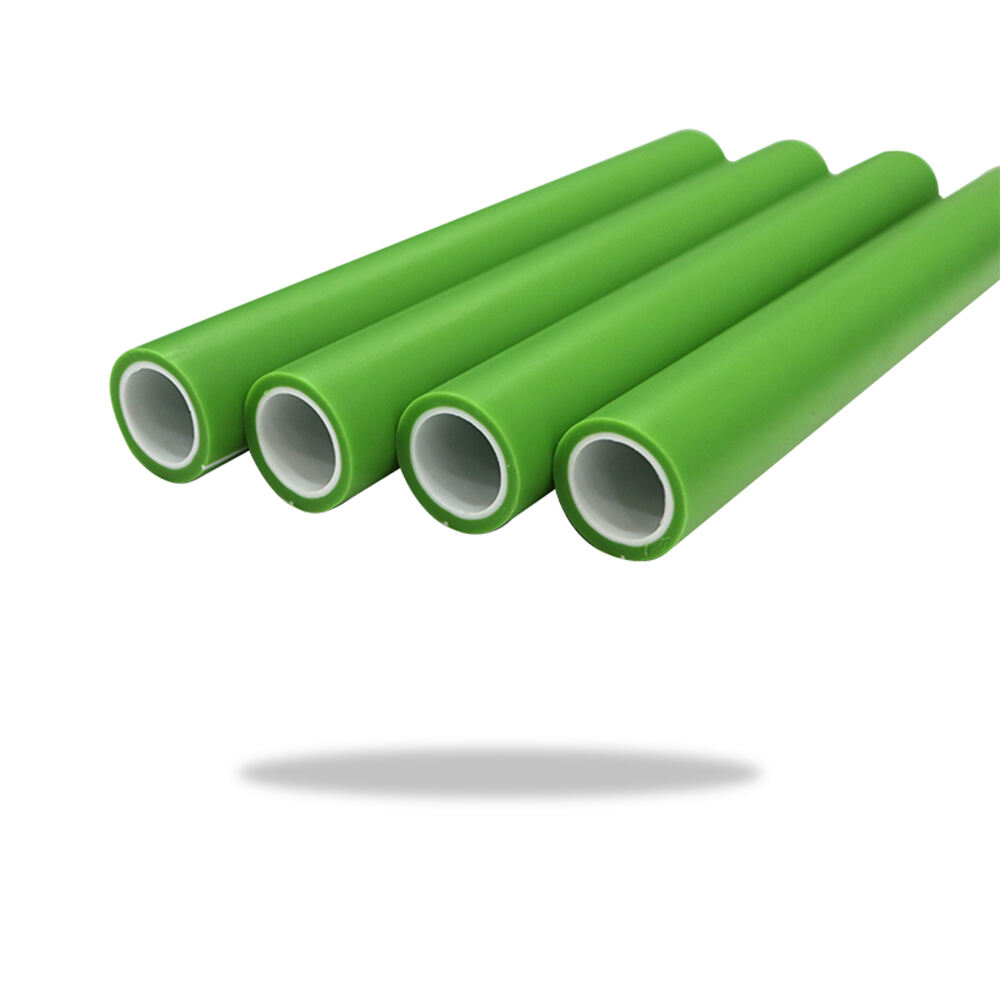PPR vs HDPE: Selecting the best Pipe for your plumbing The choice of pipes for your plumbing system can turn out to be very daunting when they are PPR Pipes and HDPE Pipes. These two options come with their pros and cons, so it is essential that the homeowner understands the basics of each in order to pick a system confidently. So choose the best one suitable for your plumbing system. So, finally which pipe would suit your household then the selection of PPR pipes or HDPE pipes all depends upon what are you looking for. Applications - PPR pipes are ideally used for hot and cold water applications meanwhile HDPE pipe provides the best performance to transfer above ground. Therefore, it is essential to consider your homes water transfer requirements when assessing these alternatives. DISADVANTAGE: Construction sites and levels on which the use of PPR pipes testifies to their functioning status.DISCUSSION ON THE ADV-01. Cost Benefit AdvantageCompared[...] This is because PPR pipes are made from a type of composite called Polypropylene Random Copolymer that provides them with high strength, making the suitable for use under conditions involving extreme temperature and pressure. Ideal for both hot and cold water uses, they are particularly durable in underfloor heating installations- connections to radiators or plumbing installations that need consistent heat supply. Advantages of PPR Pipes: Very temperature and pressure-resistant Less expensive than brass pipes Long-life expectancy of 50 years Disadvantages of PPR Pipes: Not as malleable or flexible as some other materials Challenging to install HDPE (High-Density Polyethylene) Pipes are popular in above-ground water transfer scenarios irrigation, and drainage again owing to their light weight & easy to install characteristic. Outdoor installation is perfect thanks to their impressive long-term corrosion resistance. Advantages of HDPE Pipes: Portable and Slim Anti-Corrosion and Chemical Resistant Less joints = easier installation Very high long lasting Disadvantages of HDPE Pipes: Cannot resist high temperatures and pressure as well as PPR pipes More expensive option, size dependant Not for hot water conduction Key Differences Between PPR and HDPE Pipes Explained So, the major variations in PPR and HDPE pipes are listed below: PPR pipes are manufactured using Polypropylene Random Copolymer whereas HDPE (High-Density Polyethylene) is used for the manufacturing of HDPE Pipes. Application: PPR pipes are the most advantageous to use because this is responsible for transferring hot and cold water, in contrast HDPE Pipe used more on above-ground pipelines. Strength & Durability: The PPR pipes come with high strength and can tolerate the maximum heat along with pressure in contrast to other HDPE pipes. FlexibilityReady Availability: PPR Acquired joints The HDPE pipes have more flexibility as compared to PP-R Pipes, but the later requires fewer jointoints Price:-Though HDPE pipe price can be slightly more than that of PPR pipes, it offer a cheaper solution in comparison to brass do. A HDPE Pipe and PPR Pipes the Detailed Information you Need When it comes to residential plumbing, these are the characteristics of both PPR and HDPE Pipes. The following conversation serves well to explain the various factors that you will have to consider through your choice of plumbing between PPR or HDPE pipes for fulfilling piping demands. PPR Pipes PPR pipes are an ideal choice for applications of transferring hot and cold water. Some of the key benefits you will get if you choose PPR pipes for your domestic U.P.V.C plumbing are; Pressure and Temperature Resistant It allows transfer of hot and cold water. Minimal risk of corrosion Comparatively cost effective than brass pipes Meanwhile, it is worth highlighting that PPR pipes can be difficult to install in specific onplumbing installations and they are not environmentally friendly. So, if you are conscious of the environment, PPR pipes would be bad for it. HDPE Pipes HDPE pipes are uniquely suited for residential plumbing because they're made to be used in above-ground water transfer applications, such as irrigation. Here are some more advantages that really make HDPE Pipes to stand out for your individual projectiser: Superior resistance to corrosion and chemical attack Long-lasting and durable Small and Flexible Easier bolt in installation and fewer connections needed However, HDPE pipes are not suitable for transferring hot water and have an average price range to PPR piping. Author: Priyacomment (0) Go to comments PPR Pipes vs HDPE pipes - A Comparison to help you make a better choice If you get confused between PPR and HDPE pipes, it totally depends on your requirements while installing the Plumbing system at home. HDPE pipes are known for their durability whereas, PPR pipes can withstand higher temperatures and pressure. There are also fewer chemicals and it is more affordable in comparison to HDPE pipes. So, what pipes do you need for a plumbing system in your home will depend on how detailed is that requirement? It is always best to look for an expert advice so that you can make a right decision and will not lose the value of your investment.PPR Pipes
Non-corrosive nature
Non-recyclable
HDPE Pipes

 EN
EN
 AR
AR
 BG
BG
 HR
HR
 CS
CS
 DA
DA
 NL
NL
 FR
FR
 DE
DE
 EL
EL
 IT
IT
 JA
JA
 KO
KO
 PL
PL
 PT
PT
 RO
RO
 RU
RU
 ES
ES
 SV
SV
 TL
TL
 IW
IW
 SR
SR
 SK
SK
 UK
UK
 VI
VI
 SQ
SQ
 ET
ET
 HU
HU
 MT
MT
 FA
FA
 AF
AF
 MS
MS
 GA
GA
 CY
CY
 IS
IS
 AZ
AZ
 LA
LA
 MN
MN
 UZ
UZ
 KY
KY

